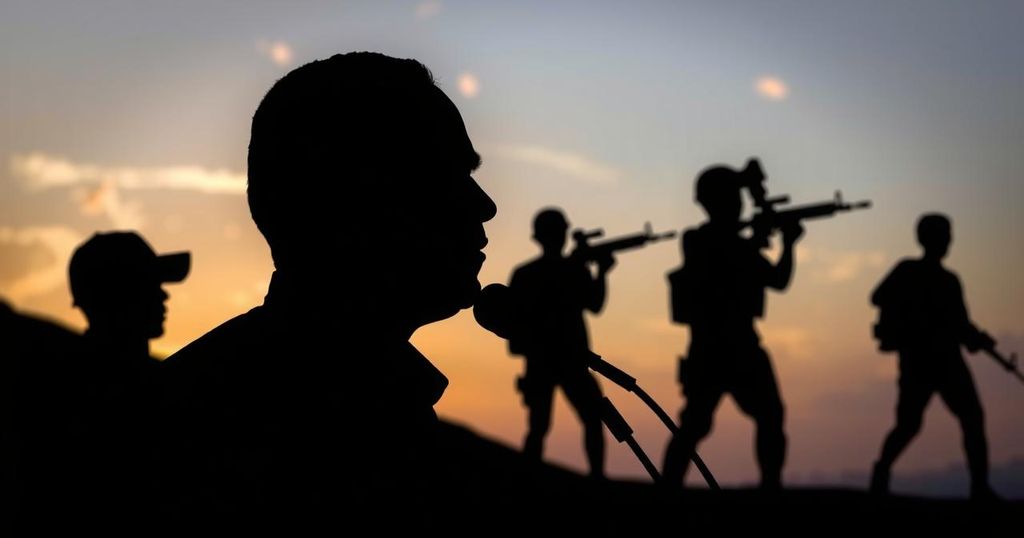President Luis Abinader of the Dominican Republic warned of potential “drastic measures” if the U.N.-backed mission in Haiti fails to curb rampant gang violence, which controls 80% of Port-au-Prince. He highlighted the need for a fully operational mission to facilitate upcoming elections and addressed the negative impact of Haiti’s instability on Dominican security, emphasizing the necessity of international support.
The President of the Dominican Republic, Luis Abinader, issued a stern warning regarding the escalating situation in Haiti, emphasizing that his government would resort to “drastic measures” if the ongoing U.N.-backed mission aimed at curbing gang violence fails. Speaking at the U.N. General Assembly in New York, he underscored the gravity of the situation, highlighting that gangs currently dominate approximately 80% of the Haitian capital, Port-au-Prince. This dominance has intensified since the assassination of President Jovenel Moïse in July 2021, contributing to the displacement of nearly 700,000 Haitians and prompting a significant exodus to the Dominican Republic. President Abinader expressed gratitude towards Kenya for leading the mission, which includes contributions from Jamaica and Belize; however, he noted that the numbers fall well short of the 2,500 personnel initially pledged. He asserted that without a fully operational mission, the prospects for transparent elections in Haiti—long overdue since 2016—remain bleak. Abinader remarked, “Practically one year from the holding of elections, the conditions are still not in place to do so,” emphasizing the urgency of ensuring the mission’s success to avoid imminent collapse in Haiti. Notably, since early 2023, gang-related violence has increasingly targeted vital government institutions, culminating in chaos that included attacks on police stations and the main international airport, which was closed for nearly three months. These violent acts led to the resignation of the former Prime Minister and the establishment of a transitional presidential council. Furthermore, Abinader addressed the implications of Haiti’s instability on Dominican security, stating, “The Dominican state has shouldered a high responsibility in the Haitian crisis, far more than should be expected of it.” He highlighted the challenge posed by the influx of Haitian nationals, evidenced by last year’s deportation of over 170,000 individuals identified as Haitians, an action criticized by human rights advocates. Abinader firmly rejected allegations of human rights violations and reiterated his government’s commitment to protecting human rights while noting the decline in the nation’s poverty and murder rates. The President concluded by stressing the need for international collaboration, stating, “The crisis in Haiti warrants particular attention. We can’t do it alone.” The president of Haiti’s transitional council is expected to address the assembly subsequently, indicating ongoing international engagement in this pressing matter.
The situation in Haiti has deteriorated significantly in recent years, with violent gangs gaining control over a vast majority of Port-au-Prince, exacerbating instability and contributing to a humanitarian crisis. Following the assassination of President Jovenel Moïse in 2021, gang violence surged, leading to massive displacement and refugee flows toward the Dominican Republic. The international community, and particularly the U.N., has stepped in to deploy peacekeeping missions in an effort to restore order, although the efficacy and adequacy of these efforts remain under scrutiny. President Abinader’s remarks at the U.N. General Assembly reflect both the urgency of the crisis and the Dominican Republic’s burdens due to the influx of Haitian migrants. The historical context of relations between Haiti and the Dominican Republic, compounded by socioeconomic pressures, fundamentally shapes the responses from both governments.
In summary, President Luis Abinader’s address at the U.N. General Assembly highlighted the dire state of affairs in Haiti, reiterating the Dominican Republic’s readiness to implement significant measures if the current U.N. mission fails to address gang violence. His comments underscore the intertwined fates of the two nations on Hispaniola, as the ongoing instability in Haiti poses a substantial challenge to Dominican security and humanitarian efforts. The need for robust international support and the urgency for a functioning peacekeeping mission were central to his message, reinforcing calls for a collaborative approach to the crisis.
Original Source: apnews.com






